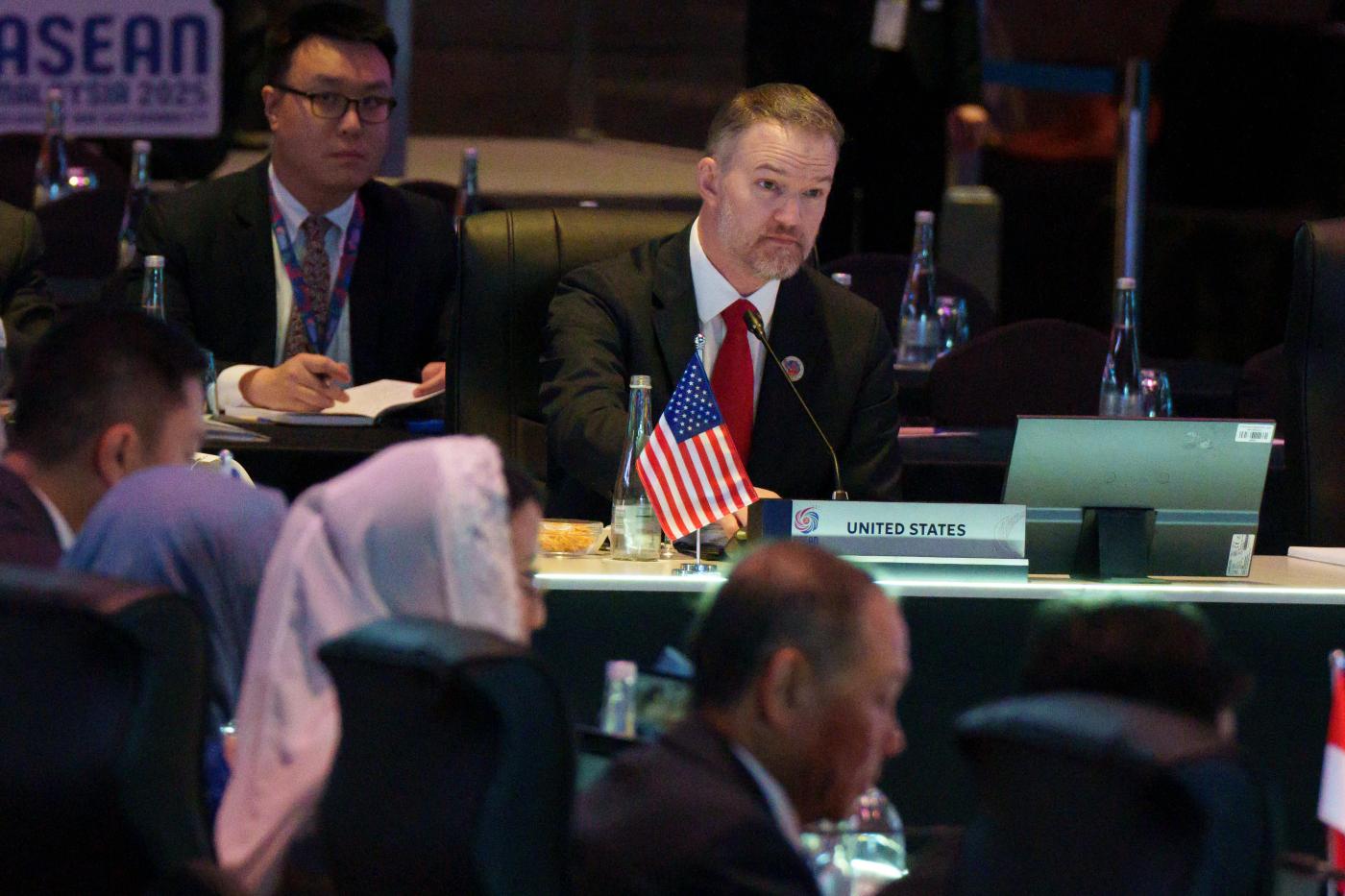**China’s New Trade Tactics Mirror Long-Standing U.S. Policies**
WASHINGTON — China has often criticized the United States for extending its influence beyond its borders to impose demands on non-American companies. However, when Beijing sought to respond to U.S. actions this month, it adopted a remarkably similar approach.
In expanding export rules on rare earth elements, China announced for the first time that foreign firms must obtain approval from the Chinese government to export magnets containing even trace amounts of rare earth materials originating from China or produced using Chinese technology. This means, for example, a South Korean smartphone maker needs Beijing’s permission to sell devices to Australia if those devices contain rare earth materials sourced from China.
Jamieson Greer, the U.S. Trade Representative, explained, “This rule gives China control over basically the entire global economy in the technology supply chain.”
### Borrowing from U.S. Trade Practices
For those familiar with U.S. trade policy, China’s move is essentially an adoption of a decades-old U.S. approach known as the Foreign Direct Product Rule. This rule extends the reach of U.S. laws to products made outside its borders and has been used regularly to limit China’s access to certain U.S. technologies even when held by foreign companies.
This is the latest indication of Beijing turning to U.S. precedents in its efforts to confront Washington amid what seems to be an extended trade war between the world’s two largest economies.
“China is learning from the best,” said Neil Thomas, a fellow on Chinese politics at the Asia Society Policy Institute’s Center for China Analysis. “Beijing is copying Washington’s playbook because it saw firsthand how effectively U.S. export controls could constrain its own economic development and political choices.” He added, “Game recognizes game.”
### Origins Trace Back to 2018
China’s urgency to develop retaliatory trade tools grew in 2018, when President Donald Trump launched a trade war against the country. At that time, Beijing began adopting laws and policies it could quickly implement during future trade conflicts — often inspired by Washington’s methods.
For example, China’s Unreliable Entity List, established in 2020 by the Ministry of Commerce, closely resembles the U.S. Commerce Department’s Entity List, which restricts certain foreign companies from engaging in business with the U.S.
In 2021, Beijing introduced its Anti-Foreign Sanctions Law, allowing agencies such as the Foreign Ministry to deny visas and freeze assets of unwelcome individuals and businesses, similar to powers held by the U.S. State Department and Treasury.
Describing it as a toolkit against foreign sanctions, the state-run China News agency quoted an ancient Chinese teaching, saying Beijing would be, “hitting back with the enemy’s methods.” Chinese scholar Li Qingming noted that the law “has combed through relevant foreign legislation and taken into consideration international law and the basic principles of international relations,” adding that it could deter further escalation.
### Expanding Controls and Reviews
Beyond sanctions and entity lists, Beijing has implemented expanded export controls and foreign investment review mechanisms over the past several years.
Jeremy Daum, a senior research scholar in law and senior fellow at Yale Law School’s Paul Tsai China Center, explained that China often models its laws after foreign examples in non-trade areas. As Beijing seeks the capacity to retaliate in trade and sanctions disputes, its tools frequently mirror those used by the U.S.
Both governments have adopted a broad definition of national security, which they use to justify restrictions on one another, Daum noted.
### Escalation Accelerates in 2024
Following Trump’s return to the White House earlier this year and the revival of his trade war posture, Beijing activated its new toolkit alongside retaliatory tariffs.
In February, reacting to Trump’s initial 10% tariff on China related to allegations that Beijing failed to curb fentanyl precursor chemicals, China’s Commerce Ministry placed PVH Group (owner of Calvin Klein and Tommy Hilfiger) and biotech firm Illumina on its Unreliable Entity List. This barred them from participating in import-export activities in China and restricted new investments.
Beijing also announced export controls on tungsten, tellurium, bismuth, molybdenum, and indium — critical elements in high-tech manufacturing.
In March, after the U.S. imposed an additional 10% fentanyl-related tariff, China blacklisted 10 more U.S. firms and added 15 companies to its export control list, including defense firms like General Dynamics Land Systems and General Atomics Aeronautical Systems, citing threats to China’s national security.
April’s so-called “Liberation Day” tariffs saw Beijing match Trump’s steep tariff increase to 125%, adding more U.S. companies to its blacklist and imposing export controls on additional rare earth minerals. This resulted in halts to shipments of magnets essential for manufacturing smartphones, electric vehicles, jet planes, and missiles.
### Risks of the Escalating Trade Conflict
While China’s new measures give it more leverage against the United States, Daum cautions that these tactics carry risks.
“There are two dangers in such a facially balanced and fair approach,” he said. “One, what one side sees as reciprocity, the other might interpret as escalation. And second, in a race to the bottom, nobody wins.”
As the trade war continues, both nations appear set to keep adapting and countering each other’s strategies — each learning from the other’s playbook in this high-stakes economic rivalry.
https://www.chicagotribune.com/2025/10/19/united-states-trade-war-china/
